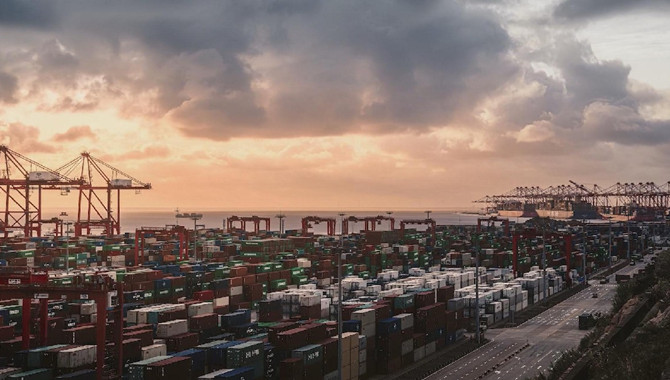
Like every other stage of his political career, Chinese President Xi Jinping's stint in Zhejiang on China's eastern coast between 2002 and 2007 when he served as the provincial Party chief featured his forward-looking vision in leadership.
Xi, who is now also general secretary of the Communist Party of China (CPC) Central Committee, always believes that adapting to and keeping pace with the times is necessary for a country to maintain its vigor.
"The situation is ever-changing and the times are moving on. We have to keep abreast of the trend of the times. Many new tasks and challenges are springing up, requiring us to cope with them," he once said.
For Zhoushan, known as the "city of a thousand islands" in northeast Zhejiang, Xi's forward-looking vision for long-term development of the local economy has brought tremendous changes to the city.
Over the years, limited land, a small population and a lack of industry have not encumbered the continuous growth of Zhoushan's economy, nor have they shaken off the local government's determination to always enrich the people.
"On Jan 5, 2003, despite the biting cold wind from the sea, Secretary Xi stepped on the Zhoushan Islands for the first time. Zhoushan had long been isolated by water and could only be accessed by boat, so it had been the Zhoushan people's dream to have a passageway connected to the land at all hours of the day. After an on-site inspection, Secretary Xi learned about the difficulties Zhoushan faced and saw its potential as well. He gave a careful thought to the sustainable development of the islands. He later put forward his maritime economic development strategy, which has brought unprecedented opportunities for Zhoushan's development," said Guo Jianbiao, then deputy secretary of the Zhoushan Municipal Party Committee and also mayor of Zhoushan.
In an interview with China Central Television in 2003, Xi shared his understanding of the three major regions in the Yangtze River Delta area that would later develop into an economic powerhouse of China and an important international gateway to the Asia-Pacific region.
"Shanghai is located where the Yangtze River flows into the Pacific Ocean. The rich cultural connotations of Jiangsu are as deep as the province's Xuanwu Lake, while Zhejiang Province's spirit is to ride the waves of the Qiantang River. The organic integration of the Yangtze River Delta with Shanghai taking the lead will bring the complementary co-development of all places involved," Xi said.
"He believed that infrastructure connectivity is the foundation for a region's opening-up, so building a cross-sea bridge is imperative," Guo said.
Thanks to years of extensive infrastructure building, Zhejiang is now home to the world's busiest port in terms of annual cargo turnover.
"Zhoushan ended the 'island era' and ushered in the 'bridge era'. It was connected to Ningbo and Ningbo was linked to Shanghai. From then on, Zhoushan has taken the fast track of the integrated development of the Yangtze River Delta. With the completion of the Zhoushan Sea-crossing Bridge, the integration of Ningbo-Zhoushan port has been accelerated. In 2022, Ningbo-Zhoushan port saw its cargo throughput exceeding 1.25 billion tonnes, ranking first globally for the 14th consecutive year," said Guo.
"We need to plan for the long term but act with a sense of urgency. We draw up blueprint, and execute the plans one after another persistently," Xi said.
The opinions expressed herein are the author's and not necessarily those of The Xinde Marine News.
Please Contact Us at:
media@xindemarine.com


 Ningbo Containerized Freight Index Weekly Commentar
Ningbo Containerized Freight Index Weekly Commentar  Ningbo Containerized Freight Index Weekly Commentar
Ningbo Containerized Freight Index Weekly Commentar  Ningbo Containerized Freight Index Weekly Commentar
Ningbo Containerized Freight Index Weekly Commentar  BIMCO Shipping Number of the Week: Bulker newbuildi
BIMCO Shipping Number of the Week: Bulker newbuildi  Ningbo Containerized Freight Index Weekly Commentar
Ningbo Containerized Freight Index Weekly Commentar  Ningbo Containerized Freight Index Weekly Commentar
Ningbo Containerized Freight Index Weekly Commentar